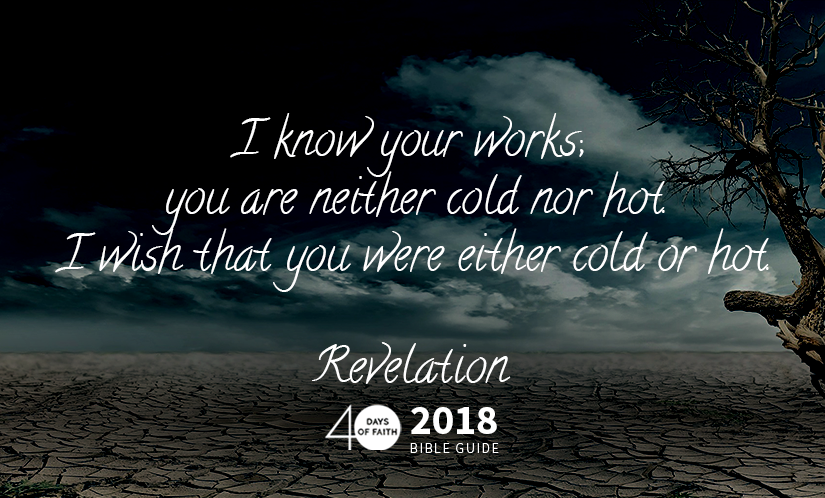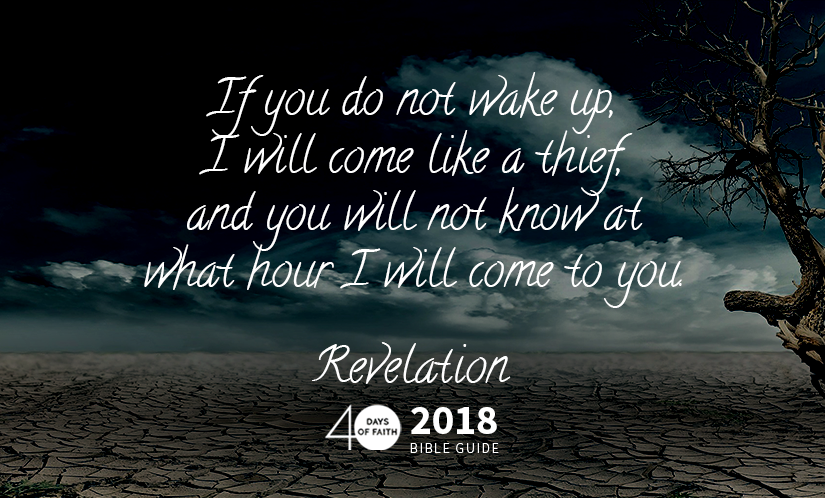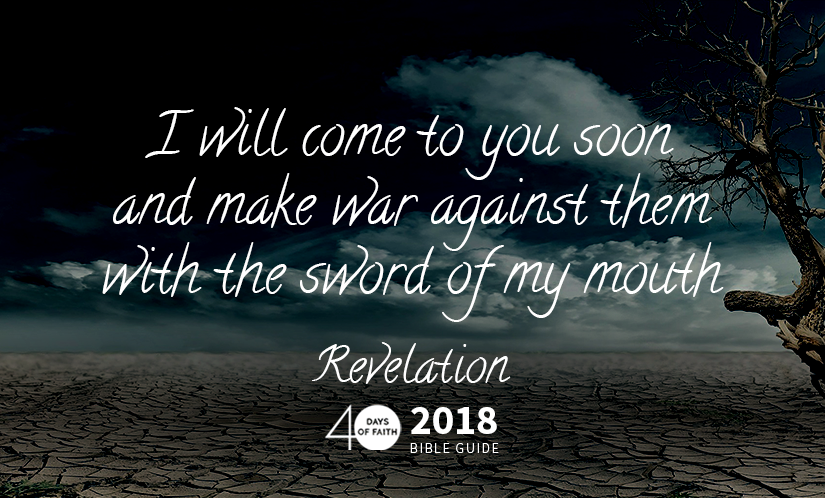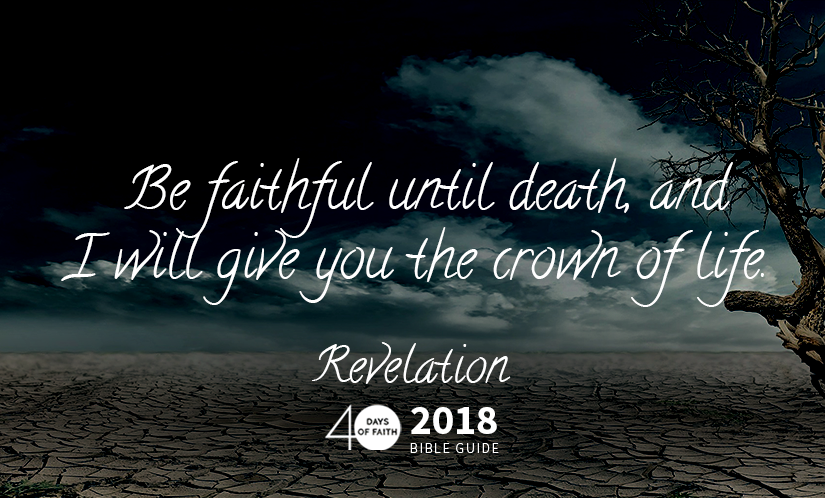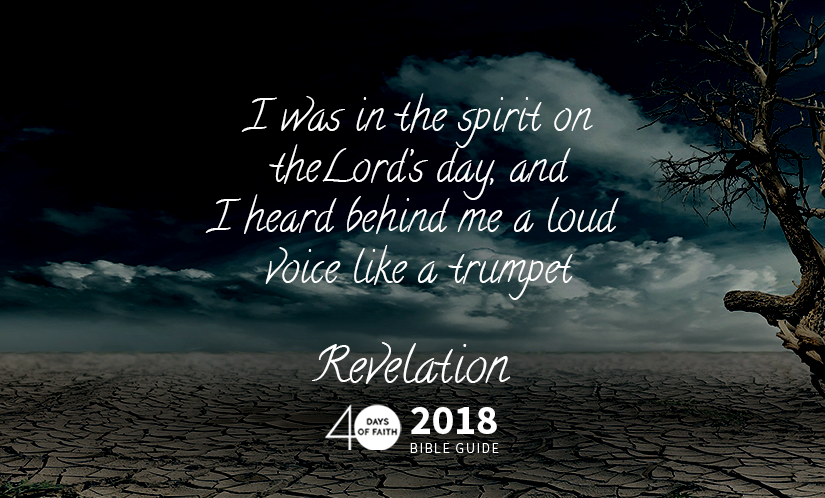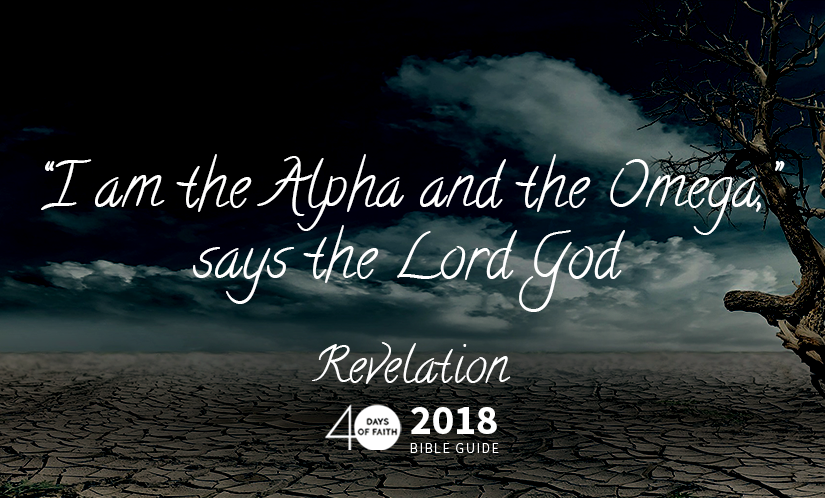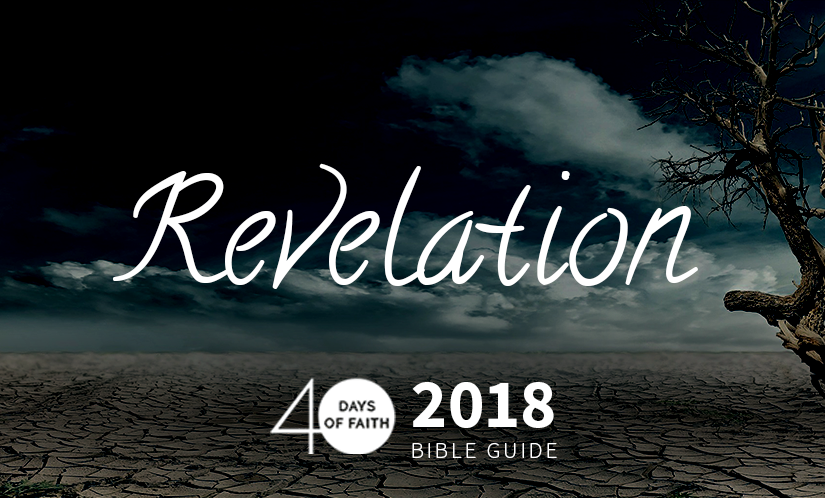Previously in Revelation
Let anyone who has an ear listen to what the Spirit is saying to the churches.
Day 6
Revelation 3:14-22
14“And to the angel of the church in Laodicea
write: The words of the Amen, the faithful and
true witness, the origin of God’s creation:
15“I know your works; you are neither cold nor
hot. I wish that you were either cold or hot. 16So,
because you are lukewarm, and neither cold nor
hot, I am about to spit you out of my
mouth. 17For you say, ‘I am rich, I have
prospered, and I need nothing.’ You do not
realize that you are wretched, pitiable, poor,
blind, and naked. 18Therefore I counsel you to
buy from me gold refined by fire so that you may
be rich; and white robes to clothe you and to
keep the shame of your nakedness from being
seen; and salve to anoint your eyes so that you
may see. 19I reprove and discipline those whom I
love. Be earnest, therefore, and repent. 20Listen! I
am standing at the door, knocking; if you hear
my voice and open the door, I will come in to
you and eat with you, and you with me. 21To the
one who conquers I will give a place with me on
my throne, just as I myself conquered and sat
down with my Father on his throne. 22Let anyone
who has an ear listen to what the Spirit is saying
to the churches.”
Points of Interest
- “Laodicea” — So wealthy it once refused Roman aid after an earthquake, this city was also known for its century’s version of banking, wool, and ophthalmology industries, which John plays on in vs. 18.
- “words of the Amen” – this whole line emphasizes Jesus’ dependability and faithfulness and creative capacity.
- “because you are lukewarm”— There were hot springs six miles from Laodicea. By the time those waters reached the city, they were lukewarm and diseased – you got sick if you drank them. In the first century, “lukewarm” was not a metaphor for indifference; this is a picture of being unhealthy, not vital.
- “I am rich” – These folks appear to be healthy and well and have all they need. People have commented that the 21st century developed world receives Revelation as Laodiceans. We are historically healthy, wealthy, and self-sufficient.
- “poor, blind, and naked” – These people are spiritually and psychologically impoverished. Their interior condition is vulnerable and empty. Various scripture passages and psychological theories have language for inner health and vitality. The New Testament author Paul speaks to the fruit of the Spirit of love, joy, peace, patience, kindness, goodness, faithfulness, gentleness, and self-control. The modern Internal Family Systems Model, a psychotherapy approach, describes people who have calmness, clarity, compassion, confidence, courage, and connectedness. Those of us who are materially wealthy often lack many of these things.
- “buy from me gold” – Jesus says this inner wealth and rightness, or purity and sight is available from connection with him.
- “I am standing at the door, knocking” – Jesus is available but will not force entry. God is gentle, does not insist on God’s own way.
- “what the Spirit is saying to the churches” – Michael Gorman summarizes the message of the seven letters as this: “listen for the Spirit of God identifying our own church’s peculiar unholy spirit and offering us the presence and grace of Christ to transform us into a more faithful people of God… whole-hearted, characterized by faithfulness and fearlessness, devotion to Jesus but not to the state, and a preference for the poor rather than the rich.” (Gorman, 99-100)
Spiritual Exercise
This week we have the image of Jesus knocking at our door and of Jesus – pictured as a strong lion and also as a vulnerable, slaughtered lamb – being our picture of the nature of God and sitting at the center of our worship. So this week we invite you to welcome Jesus to knock on your door, to center your life, and to shape your vision of God. Consider the image of Jesus knocking, asking you to have Jesus in for a meal. Picture this in your imagination. Will you open the door or not? Why is that? What inner vitality and wealth are you lacking? What would Jesus like to grow in you?
A Direction for Prayer
Pray that in an age of material prosperity and spiritual poverty, that your church will be deeply responsive to the voice of Jesus, known for people who have wealth of spirit, beautiful and unusual goodness, and clear sight.
The Bible Guide
This blog post is part of a Lenten journey through the book of Revelation. Every year during the season of Lent, we take a focused look at a portion of Scripture as part of our communal spiritual practice. This year, we are exploring what it means to be Children of God in a Fractured World, with Revelation as our lens. The series starts here.


